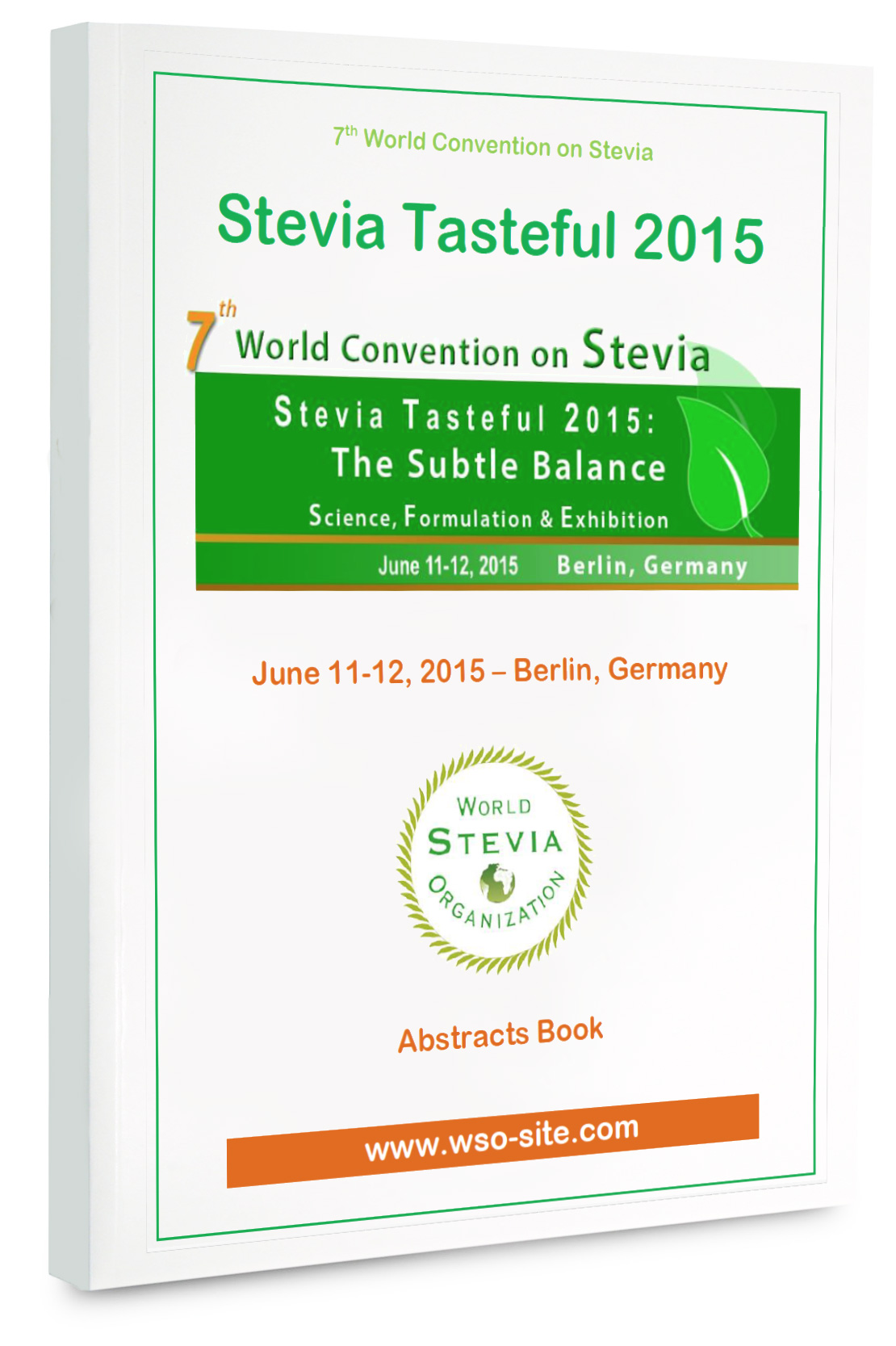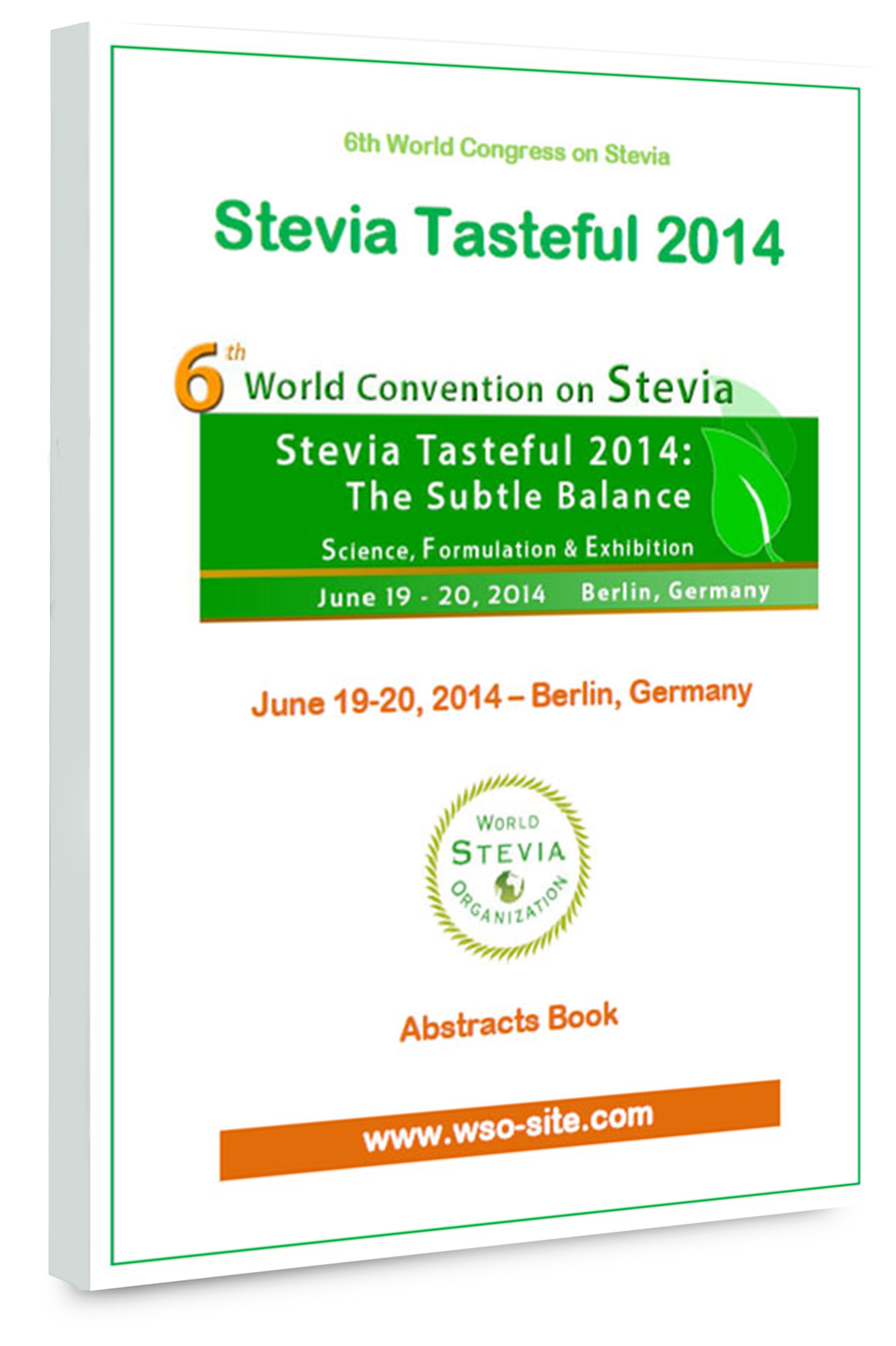Dr Per Bendix Jeppesen, from Aarhus University, Denmark, was awarded by the scientific committee of WSO during Stevia Tasteful World Congress 2013 held in Paris on May 17.
Dr Jeppesen's researches are about Stevia and its impact on health - Food or Medicine ?
As shown by Dr Jeppesen during the congress: "The United Nations has recently declared that, for the first time in human history, chronic non-communicable diseases such as heart disease, cancer and diabetes pose a greater health burden worldwide than do infectious diseases, contributing to 35 million deaths annually. This discovery of stevia sweeteners has been designated as the second sugar revolution. The steviol glycoside sweetener is a natural sweetener extracted from the Stevia plant and may protect against development of metabolic syndrome, due to the non-caloric content. However, data from human intervention studies on health effects, knowledge about sensory perceived quality, food technological aspects and consumer preference acceptance are lacking towards foods and diets sweetened with stevia compound. The plant from South America has been used by Guarani and Ache Indians in Paraguay and Brazil over the centuries, in particular, to sweeten their Mate-tea (herbal tea). Besides using the leaves to sweeten their tea, the Indians also consider the plant as a medicinal plant and use it to treat symptoms of T2D and hypertension. Stevia was first described by the Paraguayan botanist Moises Santiago Bertoni back in 1899, where he had learned about the plant's unique characteristics by help from the local Guarani Indians [1]. The plant contains many different compounds. The two best known are stevioside and rebaudioside A, which are respectively 300 and 450 times sweeter than sucrose (table sugar). Stevia sweeteners have been used successfully for over 30 years in Japan, which already in 1985 approved stevia as a sweetener ingredients[2]. Later, many other countries followed e.g. like U.S., Israel, Switzerland, China and now finally EU. Japan is by far the leading country with regard to use stevia as a sweetener. The entire 41 percent of all adding sweetener used in Japan, derived from the currently stevia plant. It is interesting that Japan has one of the lowest incidences of obesity: less than five percent compared with nearly 35 percent in the U.S. [3]. Whether this can be directly related to increased use of stevia in the population is not currently documented. When we look of the more physiological action of stevia sweetener we know that they are able to affect the endocrine systems e.g. simulates insulin secretion and thereby act in the same way as glucose [4-8]. As described below, fructose does not stimulate insulin secretion in vitro, probably because the beta cells of the pancreas lack the fructose transporter Glut-5, and as sucrose contains about 50 % fructose, this may have an impotent influence as we know insulin release can modulate food intake both via the central nervous system and via leptin secretion which has a direct inhibitory effect on food intake. Another physiological effect is the sugar induced serious metabolic complications that include dyslipidemia, fatty liver, and insulin resistance that may promote cardiovascular disease and diabetes, this in contrast to the positive effect observed by steviol glycosides. If the stevia sweeteners are able to substitute and modulate the enormous sugar intake worldwide, and thereby improve health conditions, it have it right to be subscribe as a new sugar revolution!".
If you are interested to access to the presentation of Dr Jeppesen, please contact us.


























